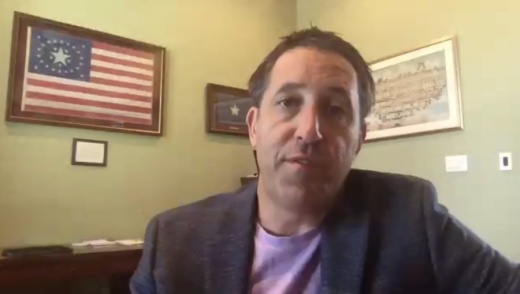Texas Comptroller Glenn Hegar said at a May 27 virtual luncheon that the state entered the era of the coronavirus in a healthy financial situation, which bodes well for the future as reopening continues, but that Texans are not out of the woods yet.
Record numbers of people are filing for unemployment, and the tourism, hospitality, dining and retail industries are being hit the hardest, Hegar said during the webinar, which was hosted by the Clear Lake Area Chamber of Commerce. Nearly 60% of all state tax collections are from sales tax, he said, so a slowdown in these businesses has a drastic impact on the health of the state’s economy.
“Looking at unemployment numbers, this is not going to be a quick recovery,” he said.
Data for March sales was not received until this month, so Hegar's office is looking at “nontraditional data points” to analyze the revenue numbers being collected and determine how to move forward while best supporting small businesses where they are now.
“Small businesses are the economic engine for creativity, for job gains,” Hegar said.
The comptroller’s office is working on a case-by-case basis with businesses and will give an updated revenue forecast in July, Hegar said.
Sales tax receipts were down 9.3% year over year last month, and within certain industries, the drops are even more significant: as compared to this time last year, motor vehicle sales are down 45%, hotel stays are down more than 60% and alcohol receipts are down 55%. That trend is expected to continue as more data becomes available, he said.
However, the numbers do show some promise: Hotel occupancy was once as low as 21% amid the pandemic, but it has since increased to 32%, he said. Airport travel, which was down as much as 95% year over year in some parts of the state, has also been steadily increasing, he said.
Another factor to consider is the world economy, Hegar said, to which Texas is closely tied since the state produces 19% of the country’s exported goods. Even though Texas has diversified economically, the events of the Russia-Saudi Arabia oil price war contribute to some of the uncertainty around the future of oil and gas jobs in Texas, he said.
“We are very much fundamentally tied to the global economy,” Hegar said. “Some regions of the state may have some type of recessionary impact.”
Overall, Hegar said he expects the state to regain eventually its above-average economic standing, even if it is a slow process.
“The economy, to some degree, is rebounding,” Hegar said. “Texas is going to continue to outpace the national average from an economic perspective.”





